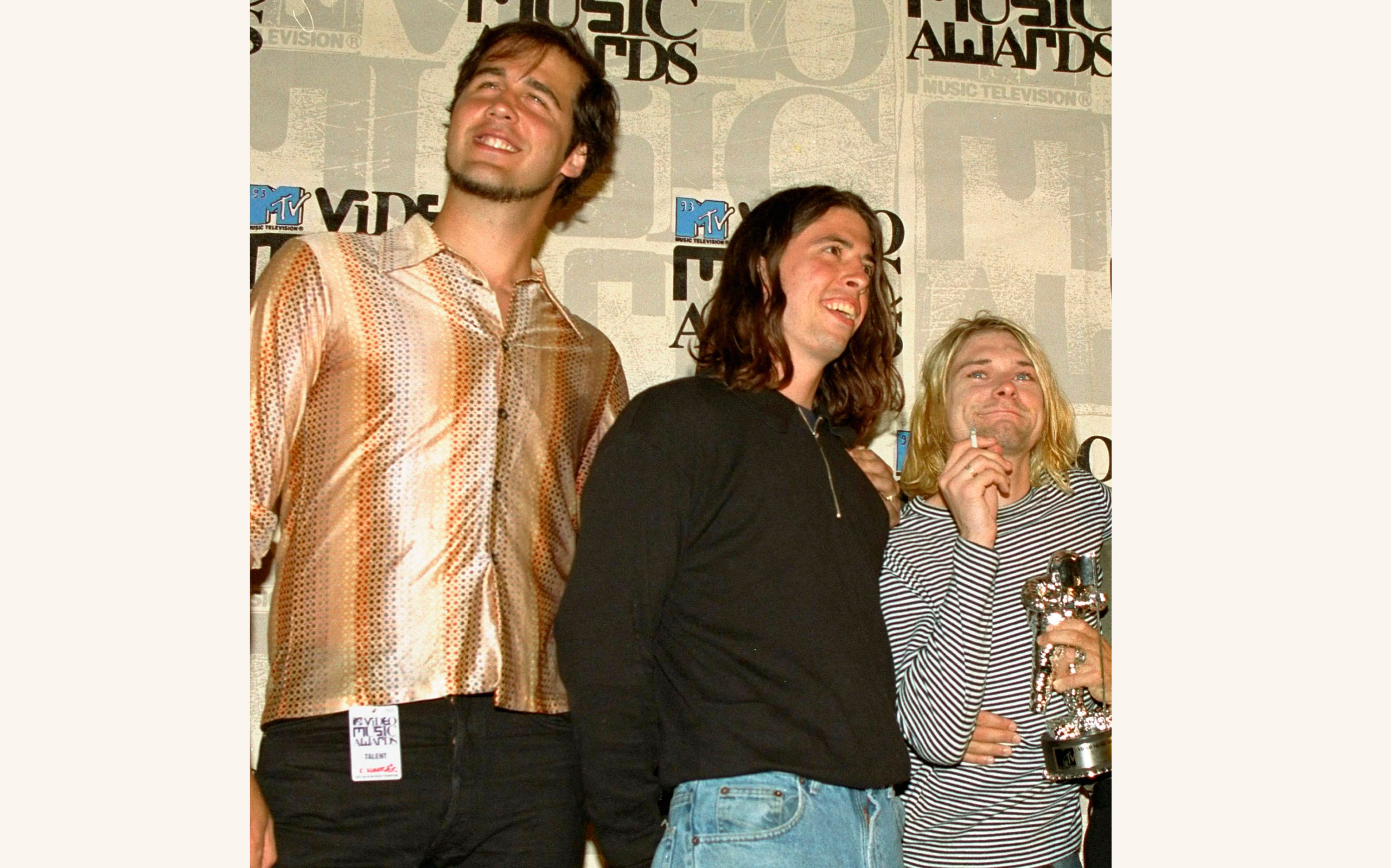Federal court revives lawsuit against Nirvana over 1991 'Nevermind' naked baby album cover
A federal appeals court has revived a child sexual exploitation lawsuit filed by the man who appeared naked in a pool as a 4-month-old on the cover of Nirvana’s 1991 album “Nevermind.”

Your support helps us to tell the story
From reproductive rights to climate change to Big Tech, The Independent is on the ground when the story is developing. Whether it's investigating the financials of Elon Musk's pro-Trump PAC or producing our latest documentary, 'The A Word', which shines a light on the American women fighting for reproductive rights, we know how important it is to parse out the facts from the messaging.
At such a critical moment in US history, we need reporters on the ground. Your donation allows us to keep sending journalists to speak to both sides of the story.
The Independent is trusted by Americans across the entire political spectrum. And unlike many other quality news outlets, we choose not to lock Americans out of our reporting and analysis with paywalls. We believe quality journalism should be available to everyone, paid for by those who can afford it.
Your support makes all the difference.A federal appeals court on Thursday revived a child sexual exploitation lawsuit filed by the man who appeared naked as a 4-month-old on the cover of Nirvana’s 1991 album “Nevermind.”
Spencer Elden's lawsuit against the grunge rock group alleges that he has suffered “permanent harm” as the band and others profited from the image of him underwater in a swimming pool, appearing to grab for a dollar bill on a fish hook.
The suit says the image violated federal laws on child sexual abuse material, although no criminal charges were ever sought.
A federal judge in California threw out the lawsuit last year but allowed Elden to file a revised version, which the judge later dismissed on grounds that it was outside the 10-year statute of limitations of one of the laws used as a cause of action.
Thursday's decision by a three-judge panel of the Ninth U.S. Circuit Court of Appeals in California reversed that ruling and sent the case back to the lower court.
The appellate panel found that each republication of an image “may constitute a new personal injury” with a new deadline and cited the image's appearance on a 30th anniversary reissue of “Nevermind” in 2021.
“The question whether the ‘Nevermind’ album cover meets the definition of child pornography is not at issue in this appeal,” the court wrote, according to the New York Times.
A lawyer for Nirvana members didn't immediately reply to an email seeking comment Thursday evening. However, attorney Bert Deixler issued a statement to Billboard magazine calling the ruling a “procedural setback.”
“We will defend this meritless case with vigor and expect to prevail,” he said.
The Associated Press does not typically name people who say they have been victims of sexual abuse unless they have repeatedly come forward publicly, as Elden has.